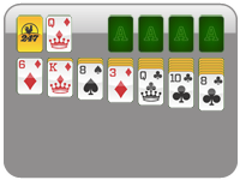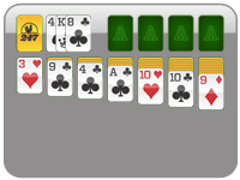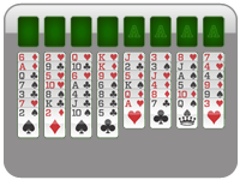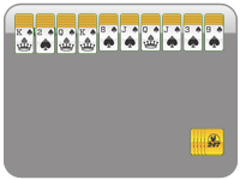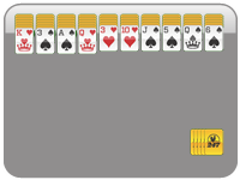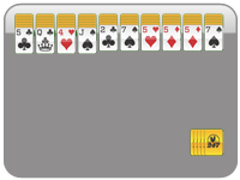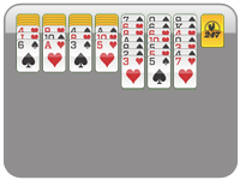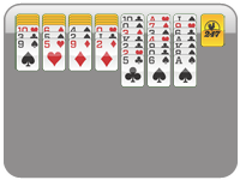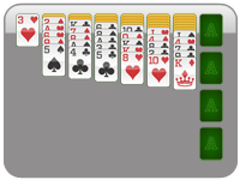Are Card Games Good for Your Brain? Exploring the Cognitive Benefits of Card Games for Older Adults
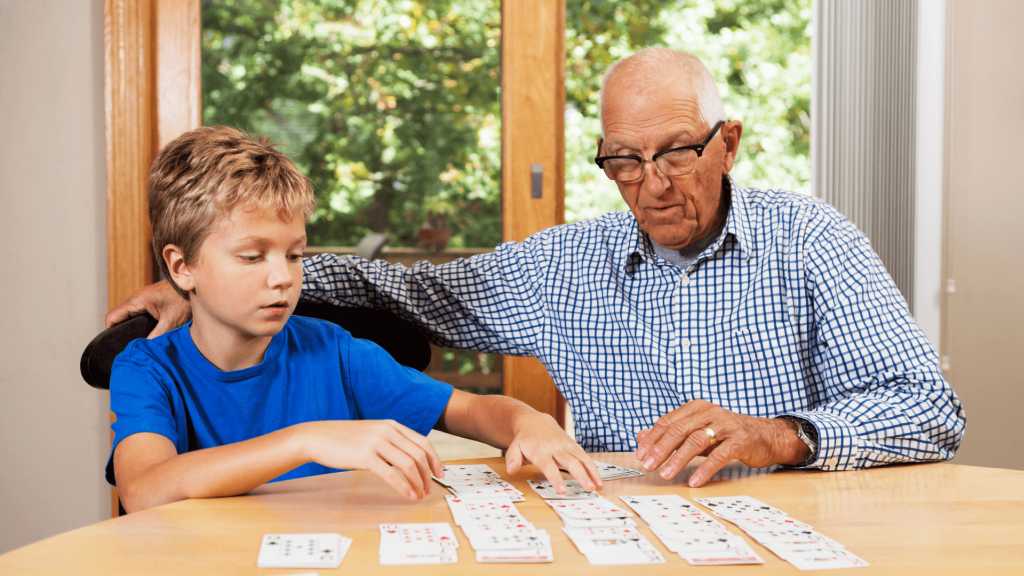
The fear of cognitive decline is a serious one for those who are aging. According to the World Health Organization, many individuals notice a dulling of their senses from the age of 45 and up, commonly known as subjective cognitive decline (SCD). At least 11% of adults report experiencing difficulties with SCD--of that number, almost 30% live alone. The symptoms of cognitive decline can range from mild to severe in terms of impairing quality of life.
For many older adults experiencing negative changes to their cognitive functioning, keeping their minds active can produce many positive effects. Card games for older adults offer a fantastic way to get a daily session of extra mental stimulation: many older card games are accessible, quick, and, most of all, enjoyable.
Here are some of the benefits of card games that improve cognitive function, so we can keep our minds sharp as we age.
4 cognitive benefits of card games for older adults
Card games for older adults stimulate many different facets of our brains and improve our cognitive abilities like memory, organization, and forward-thinking. Cognitive skills are critical components to succeeding in card games, including many skills susceptible to cognitive decline.
Card games can help improve working memory for adults
The simple act of engaging our brain on a regular basis with complex tasks is important to maintaining healthy cognitive function. Partial to full memory loss is one of the most prevalent and dreaded symptoms of cognitive decline, so it’s important that our memorization skills are frequently utilized to prevent them from atrophying.
Card games engage our memory at high levels, asking players to recall information for gameplay objectives. From cards in a discard pile to the state of hands belonging to other players, card games require you to stay focused on what’s in front of you while also keeping the overall game in mind.
Card games promote observation skills and attention to detail
Unfortunately, one aspect of cognitive decline is losing the ability to engage with the little details of life, like dates, names, important routines, or other crucial details. Observational abilities get us through everyday challenges of life and our attention to detail informs how we learn.
One of the benefits of older card games is that, while they’re simple to learn, players will soon appreciate the depth and complexity they offer--especially in terms of observation. Plus, card games are an easy addition to anyone’s routine, especially older individuals with more free time.
Playing our favorite card games frequently asks us to observe otherwise insignificant details. Games often hinge on how players read each other, and details can be everything. For instance, poker players need to parse the state of the game around them using just a few details and deductive reasoning, like who folded and what your hand tells you about others.
Card games sustain motor abilities
The benefit of analog games isn’t only mental stimulation; many games require attuned physical ability, too, even if just a little. The physical benefits of playing card games can help slow down the loss of gross dexterity and fine motor skills in the elderly.
Loss of physical ability as we age can hinder many aspects of life. Physical cards and game pieces can be a low-stress physical activity to keep motor abilities trained, which studies found to have been associated with life-long, positive cognitive benefits in participants starting from as young as age 11.
Shuffling cards and holding onto a hand may seem like something anyone can do, but it’s important to remember how our brain interacts with every movement our bodies make. Reflexes and agility are a combination of neural strength and physical ability.
Also, intense physical exercise may not be for everyone, especially as we age. That’s why physical card games can help our bodies and minds stay sharp even when sitting down at a table or on the floor.
Card games for old people offer mental and social stimulation
For those vulnerable to cognitive decline, frequent socialization is recommended alongside mental stimulation to keep minds sharp. Loneliness among seniors in America alone is an epidemic, and the effect depression and loneliness have on the brain can be, quite literally, life-threatening.
Studies suggest that socialized group activities--which include multiplayer card games--have had positive effects on participant’s mental cognition. Physical games with a slower pace and simple rulesets can keep a brain occupied for hours at a time, and the social interaction these games can bring is invaluable to fostering positive self-care.
5 card games for the elderly that help to improve cognitive function
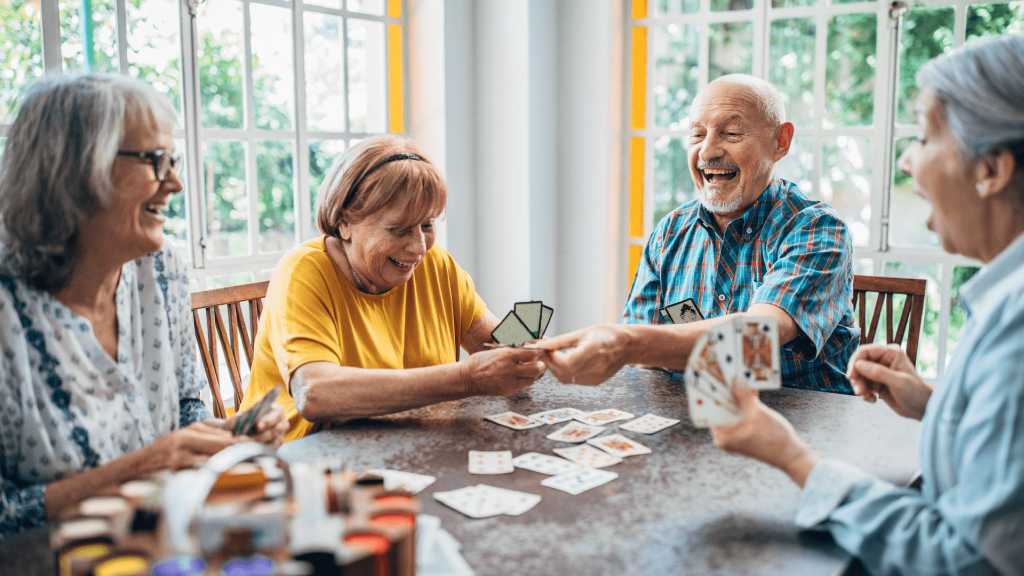
You have your choice of hundreds of games to care for your cognitive skills. Card games may be particularly suited for individuals looking for games of patience and numerical strategy. Many also have variations for playing with a group or playing alone, allowing greater flexibility.
Solitaire -- Organize cards in the best way possible
Of all the older card games that have cognitive benefits, Solitaire is perhaps one of the best games for older adults. Solitaire is a game of organization that requires some patience--which, of course, is why it’s also called "Patience."
One of the biggest benefits of Solitaire is that it’s a solo game, so you can play any time and the pace of the game is entirely decided by you. Alternatively, though, you can play competitively with others at a faster pace to foster social interaction.
What Solitaire has in common with other games in this list is that the game’s play is done almost entirely within the mind. With no way to affect the draw of a deck, each game asks players to adapt to new circumstances, keep sufficient track of complicated systems, and consider different possibilities that each new draw will open up. When it comes to memory, attention to detail, and mental stimulation, Solitaire has a lot to offer!
Play free solitaire now!
Poker -- Improve your memory and reasoning each hand
Poker is a quintessentially social game. Rounds are quick, setup is easy, and the game doesn’t need to be "high-stakes" to still be tactical and enjoyable. Talking throughout poker is easy and fun, but it’s also a way to improve your gameplay. While your friends or loved ones might have a good poker face, noticing slight changes in behavior can assure you success and promote your cognitive abilities.
Also, as said previously, poker encourages deductive reasoning to play efficiently. Often the challenge isn’t the hand dealt to the player, but what their hand might infer about the overall state of the table during play.
Bridge -- Get the intellectual and social stimulation you need
When it comes to social card games, Bridge is one of the best. In this four-player game, you work with another player to win tricks. This involves non-verbal communication, attention to detail, and mental flexibility.
A team game opens a lot of new avenues for socialization. As established, while mental stimulation from card games may be helpful in maintaining cognitive health, regular social interaction is an incredibly vital part of keeping the brain happy and healthy.
Gin Rummy -- Pay attention to every little detail
Gin Rummy is a two-player variant of Rummy, a game about forming sets or sequences (called melds) from your hand to score points. In this version, you are trying to play more from your hand than your opponent is able to. Succeeding in Gin Rummy requires lots of focus and the ability to predict the other player’s hand.
Also, keeping track of the state of the deck is especially useful here since you want to know what kinds of cards might come up next. This is another positive exercise in stretching your cognitive abilities.
Mahjong -- Sharpen your mind and concentration
Mahjong, famous for its beautiful tiles, is an entirely unique game with its own language. Learning Mahjong is already an exercise of cognitive ability for first-time players, and the hands you need to form change every year in official play.
However, Mahjong can be a tremendously rewarding exercise for the mind. The tileset is more complex than a traditional deck of cards and can be spread across multiple players, making the game a test of the player’s concentration and strategy.
Also, you rarely know what the next tile drawn is going to be. Keeping track of what people choose to pick up or pass on can inform your own decision-making. Knowing when to grab a tile to make Mahjong is key to success, too.
Staying sharp is easy with the best card games for older adults

Anxiety about the effects of aging on our lives can be incredibly paralyzing. Cognitive disease and loneliness might seem like a curse without any control, but when faced with such challenges, there’s nothing as valuable as a support network of people we care about. A person’s support network will always start with them, and how we treat ourselves is just as important as how we try to reach out to others.
We may grow older, but we are never too old to play and enjoy our friends and loved ones. Card games for older adults are among many options for people who are looking to stimulate their minds as they age. Still, these older card games are a reliable and accessible method with many benefits!
Solitaire Games
More Solitaire Games
More Games
Solitaire News
Disclaimer
DISCLAIMER: The games on this website are using PLAY (fake) money. No payouts will be awarded, there are no "winnings", as all games represented by 247 Games LLC are free to play. Play strictly for fun.

